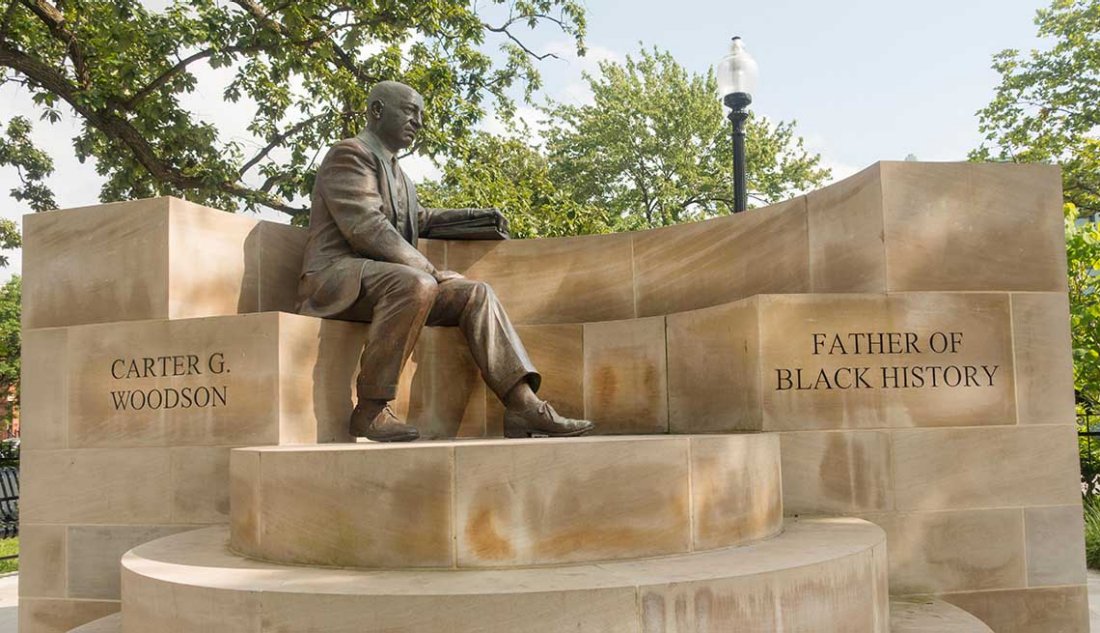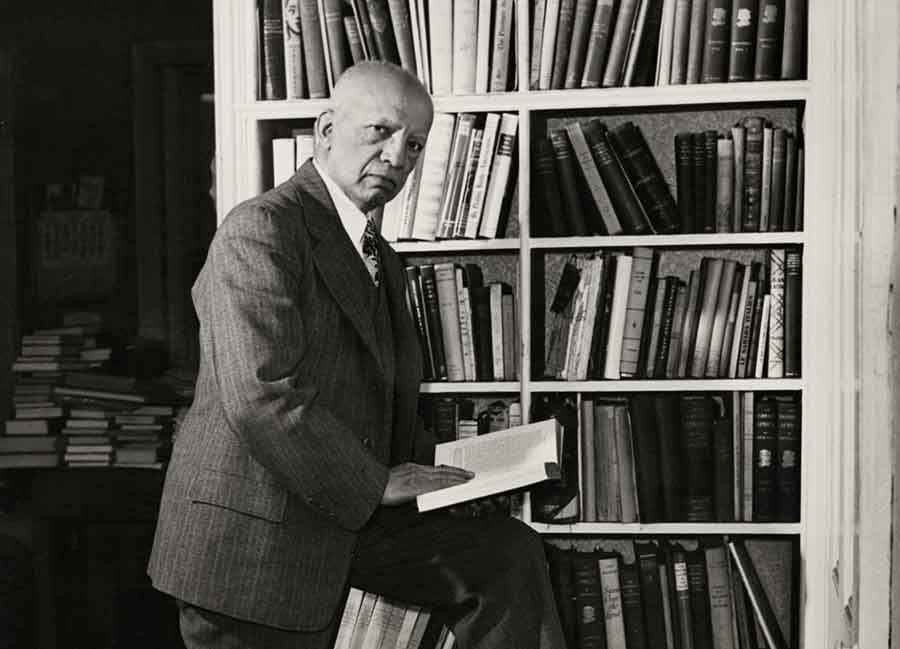Carter G. Woodson and the History of Black History Month

While writing Krak Teet, I wrote a poem that described the elder stories I was gathering. The poem began and ended by saying: I’ma write a book because I’m tired of all the books they got now.” I was referring to the same names we hear every Black History Month. Overlooking the Black history in our own families and communities is a huge disservice. Carter G. Woodson was on the same wavelength. He was sick of the books not mentioning Black folk at all though.
About Carter G. Woodson
He was born on December 19, 1875—ten years after the 13th amendment which outlawed slavery (unless you’re a prisoner). His parents had been enslaved. They were very poor, but the story of becoming free and the value of being free was rich up in that house. Like most poor folk back then, he had to drop outta school to help the family make some money. When he turned 17, he followed his brother to West Virginia hoping that he could get back into school. Still needing to make money, he ended up in the coal mines instead of the classroom.
Getting back in school was always the goal though, and at 20 years old he got his high school diploma. He started teaching and used his income to get into college. He spent about four years in the Philippines, which the U.S. had taken possession of, as a school supervisor. And he became the second Black person to earn a PhD (W.E.B. Du Bois was the first), and both of ’em earned it at Harvard.

He became a member of the American Historical Association, which is currently the oldest association of historians in the country. Although he paid his dues, he couldn’t attend the conferences because he was Black. What bothered him more than that though was the fact that the Association documented no Black history.
“Woodson became convinced he had no future in the white-dominated historical profession, and to work as a Black historian would require creating an institutional structure that would make it possible for Black scholars to study history.” —Darlene Clark Hine
He was also cool with Marcus Garvey and wrote for Garvey’s weekly paper called Negro World.
Negro History Week Becomes Black History Month
When the world ain’t got what you need, you bring it yourself. That’s what Carter G. Woodson, along with four other Black men, did when they founded the Association for the Study of Negro Life and History on September 9, 1915. It was intended to teach folk about Black history and provide opportunities for Black and white folk to network under the same roof.
The Association for the Study of Negro Life linked up with the American Folklore Society in 1927 and created a fellowship that would pay someone $1,400 to travel for six months throughout Florida, the Georgia Sea Islands, Alabama, and Louisiana to record stories and traditions from the Black people living there. Zora Neale Hurston got the job. (This is also when she first interviewed Kossola Cudjo Lewis which she used to write Barracoon.) Uncle Carter wanted that straight-from-the-horse’s-mouth kinda Black history.

On February 26, 1926, Woodson started Negro History Week. Remember: Most public schools weren’t teaching Black history at all, so this was his way of getting in the door. And it worked. Of course not all public schools adopted it, but many did—Black ones, especially. Many of my elders remember when Black History Month was Black History Week. In the 1960s, it evolved from a week to a month. And it became recognized by the federal government in 1976.
Supposedly it’s in February to honor Frederick Douglass and Abraham Lincoln, two men Woodson believed helped emancipate Black people. (Both of their birthdays are in February.)
The Mis-Education of the Negro
Carter G. Woodson published The Mis-Education of the Negro in 1933 and I highly recommend it. Know how folk be talking about how welfare was one of the worst things to happen to the Black community? Or how it don’t make no sense to be protesting without a plan? How we can’t get ahead because we don’t love/trust ourselves, don’t know who we are? How we gotta go beyond surviving and learn how to thrive? How we’ve been lied to our whole lives? He talked about all of that in the book.
One of my favorite lines: “History shows that it does not matter who is in power or what revolutionary forces take over the government, those who have not learned to do for themselves and have to depend solely on others never obtain any more rights or privileges in the end than they had in the beginning.”
Another one: “If you can control a man’s thinking you do not have to worry about his action. When you determine what a man shall think you do not have to concern yourself about what he will do. If you make a man feel that he is inferior, you do not have to compel him to accept an inferior status, for he will seek it himself. If you make a man think that he is justly an outcast, you do not have to order him to the back door. He will go without being told; and if there is no back door, his very nature will demand one.”

